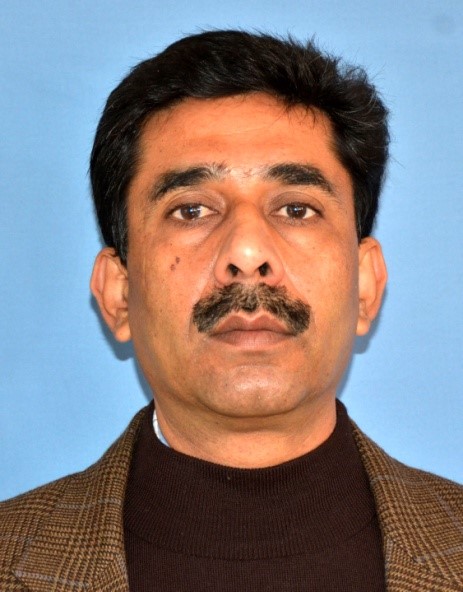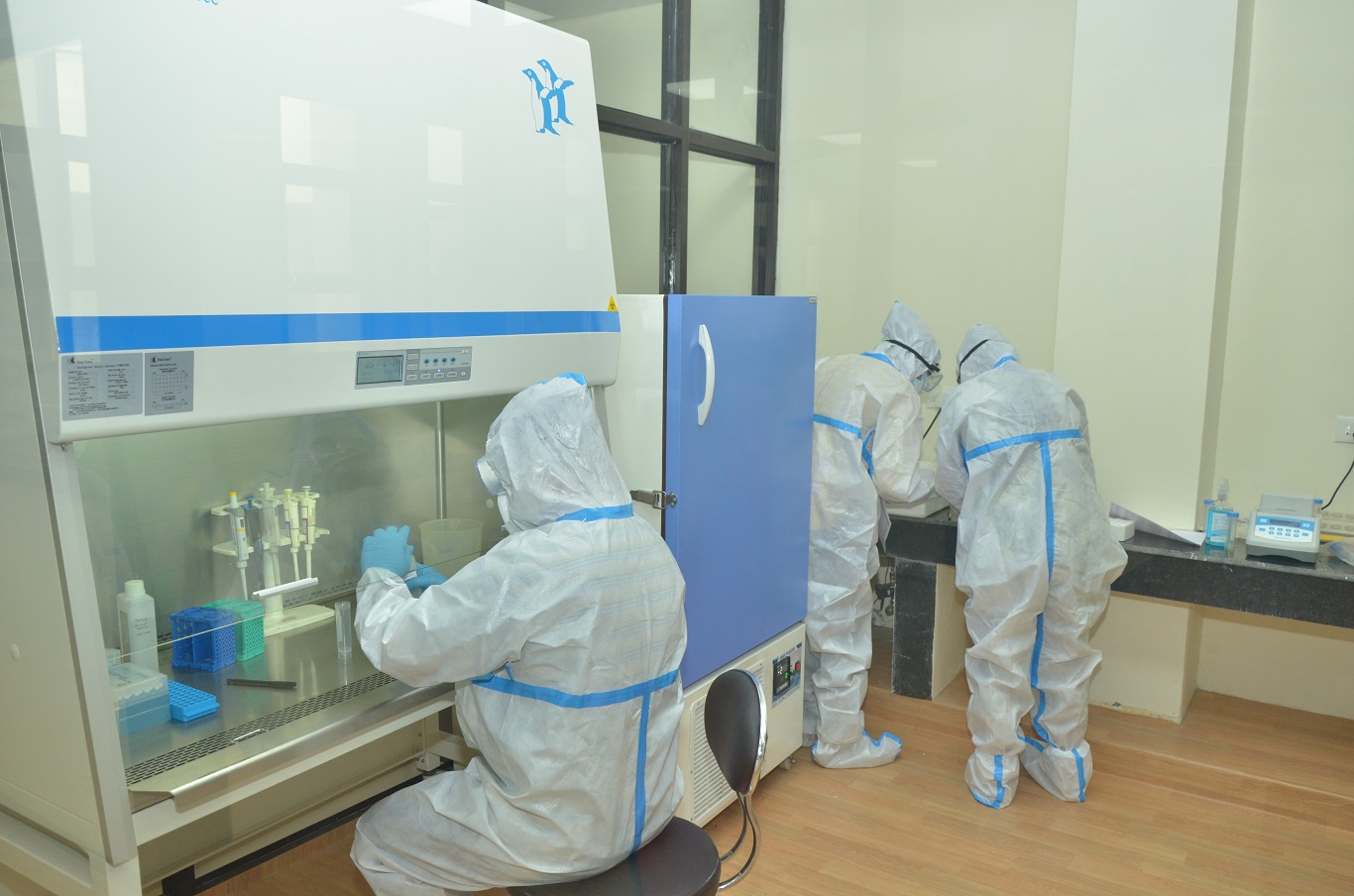College of Animal Biotechnology
Know About the College
The 'College of Animal Biotechnology' is a constituent college of the 'Guru Angad Dev Veterinary and Animal Sciences University' and is situated on the main campus of the University at Ludhiana. The erstwhile 'Post-Graduate Institute of Veterinary Education and Research (PGIVER)' was upgraded to 'School of Animal Biotechnology' in 2010. The school was further upgraded to the existing 'College of Animal Biotechnology' in 2019 with an objective to focus on research and teaching programs. The college aims towards directing the research to the needs of the farmers in the field of animal sciences by promoting translational research in the area of genomics, proteomics, bioinformatics, vaccinology, diagnostics, molecular biology, stem and cell biology.
The college offers a graduate program B.Tech. (Biotechnology) with 30 seats and post graduate programs viz. M.V.Sc. (Animal Biotechnology) / M.Sc. (Biotechnology) and 'M.Sc. (Biotechnology) with specialization in Animal Biotechnology' with a total of 17 seats and Ph.D. (Animal Biotechnology)/ Ph.D. (Biotechnology) with an intake capacity of 4 seats for students with bachelor degree in Biotechnology/Medical/Life Sciences/Biochemistry/Microbiology/Molecular Genetics/ B.F.Sc. The duration of the graduate program is for 4 years; the Masters program for 2 years, and the Ph.D. program for 3 years.
The college is also striving to conduct translational research in the various fields of biotechnology having direct or indirect implications on animals, particularly livestock. The college harbors numerous laboratories which are well equipped with sophisticated equipment to work in various fields of biotechnology and life sciences.
Mandate
- To undertake teaching, research, and training/extension in various facets of animal biotechnology, genomics, bioinformatics, microbial and environmental biotechnology.
- To generate scientific expertise and human resources trained for catering to institutional / industrial research and development requirements.
- To develop specialized and state-of-the-art laboratory facilities for research in the cutting-edge areas of biotechnology relevant to veterinary and allied sciences.
- To identify and characterize genes implicated in growth, production, reproduction, as well as stress and diseases.
- Harnessing omics and computational biotechnology in genetic improvement of farm animals.
- Development of molecular and serological diagnostics including point-of-care tests (POCTs), and new generation vaccines.
- To utilize stem and cell biology for enhancing lactation performance and regenerative therapy.
Goals
- To develop rapid point-of-care (POC) diagnostics with improved sensitivity and specificity for detection of infectious and non-infectious diseases.
- To develop improved, multi-component vaccines for economically important diseases of animals.
- To identify genome-wide markers for early and accurate selection for economically important traits, disease resistance, and parentage determination of animals.
- To facilitate research on stem cells for regenerative therapy in livestock.
- To develop and disseminate artificial intelligence and IoT driven, farmer-friendly technologies for smart data recording and precision farming.
Dean, College of Animal Biotechnology
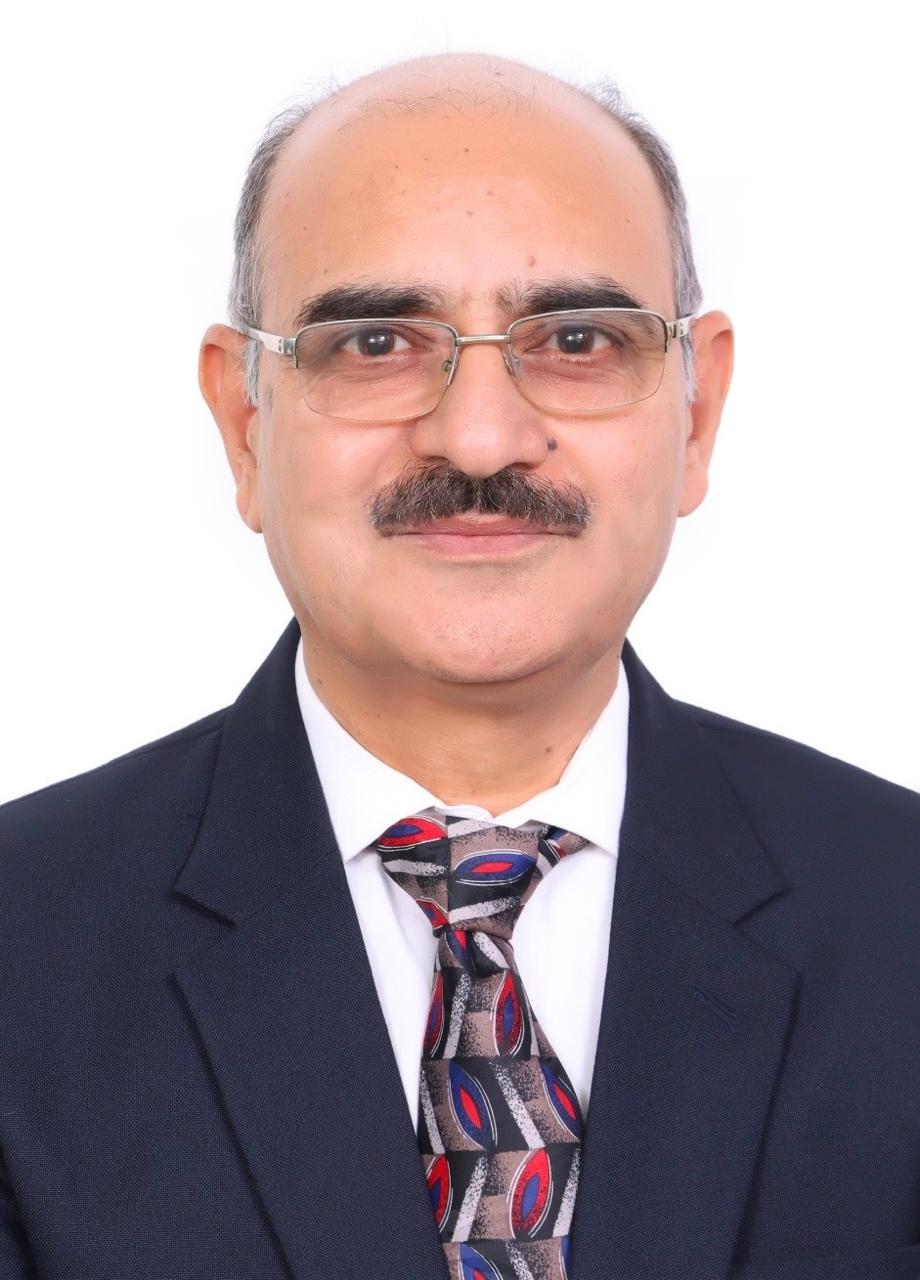
Dr. Suresh Kumar Sharma
Address: Dean, College of Animal Biotechnology, Guru Angad Dev Veterinary and Animal Sciences University, Ludhiana
Email: deancoabt@gadvasu.in
Call: +91-161-2553356, 2553357
Brief Introduction
Dr. Suresh Kumar Sharma, took the additional charge of Dean, College of Animal BioTechnology at Guru Angad Dev Veterinary & Animal Sciences University, Ludhiana.
Former Dean/ Directors
|
S. No. |
Name |
Duration on the post |
Date of Retirement |
Photograph |
|
1. |
Dr. G.S. Brah |
01-02-2012 to 30-11-2013 As Director, School of Animal Biotechnology |
30-11-2013 |
|
|
2. |
Dr. Ramneek |
03-12-2013 to 06-10-2020 As Director, School of Animal Biotechnology |
--- |
|
|
3. |
Dr. YS Malik |
07-10-2020 to 15-04-2024 As Director, School of Animal Biotechnology |
--- |
|
Academic Facilities
- The College of Animal Biotechnology has five lecture halls equipped well with modern audio-visual teaching aids including LED projectors, computer podiums, and smart displays.
- The college also has one committee room with a seating capacity for 40+ individuals, well equipped with up-to-date presentation facilities with video conferencing, broadband connectivity, air conditioning, and furnishing.
- The college has one mini-auditorium with a sitting capacity for 100+ individuals, well equipped with up-to-date presentation facilities with broadband connectivity, air conditioning, and furnishing.
- The college also has one library which has books (paperback/hardcover >354 and e-Books >22), meeting the requirements of UG, PG and Ph.D students. The thesis of the students of college are available in the college library.
Research Facilities
The College of Animal Biotechnology has the following laboratories:
- Molecular Diagnostics and Vaccinology Laboratory
- Cell and Molecular Biology Laboratory
- Animal Stem Cells Laboratory
- Leptospira Laboratory
- Animal Genomics Laboratory
- Proteomics and Metabolomics Laboratory
- Centralized Research Laboratory
Some of the specialized equipments in laboratories
Real Time PCR
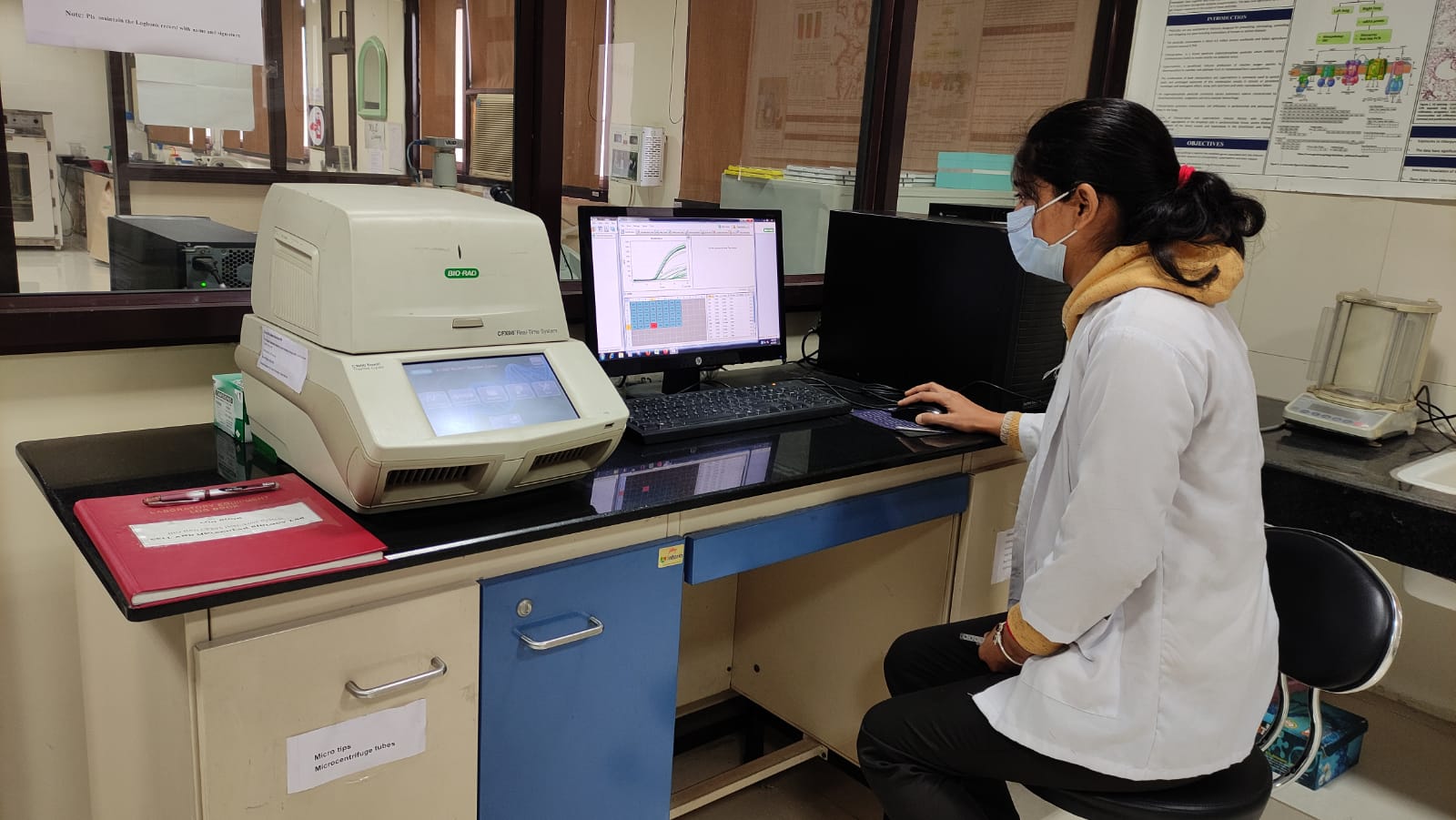
PCR Thermocycler
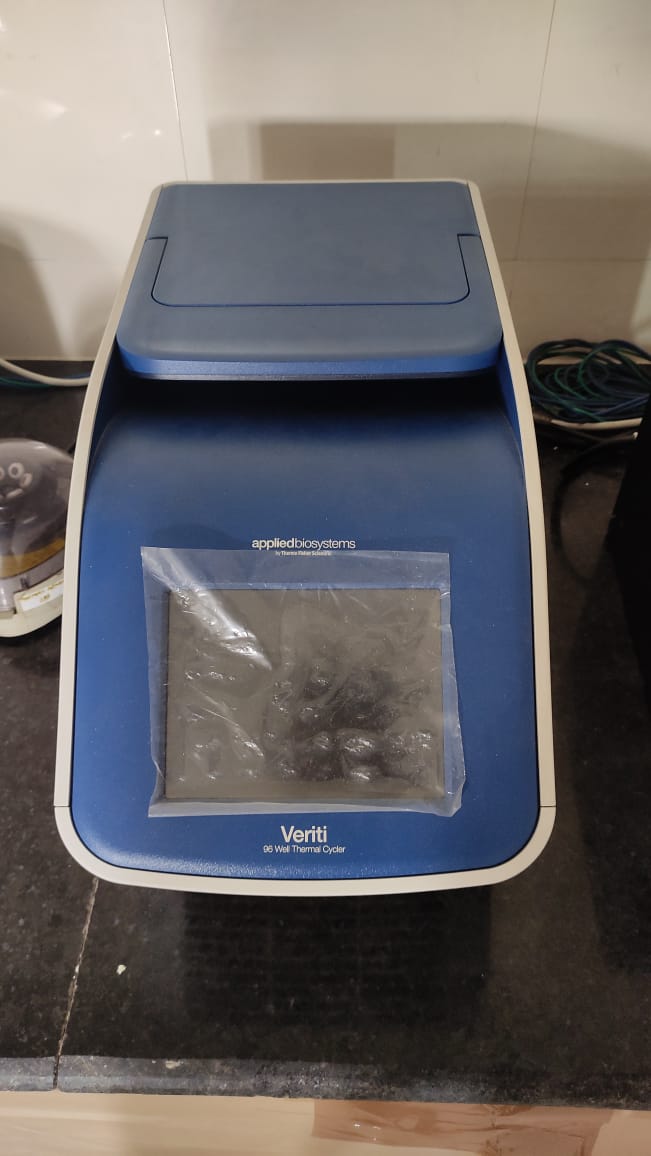
NanoDrop One
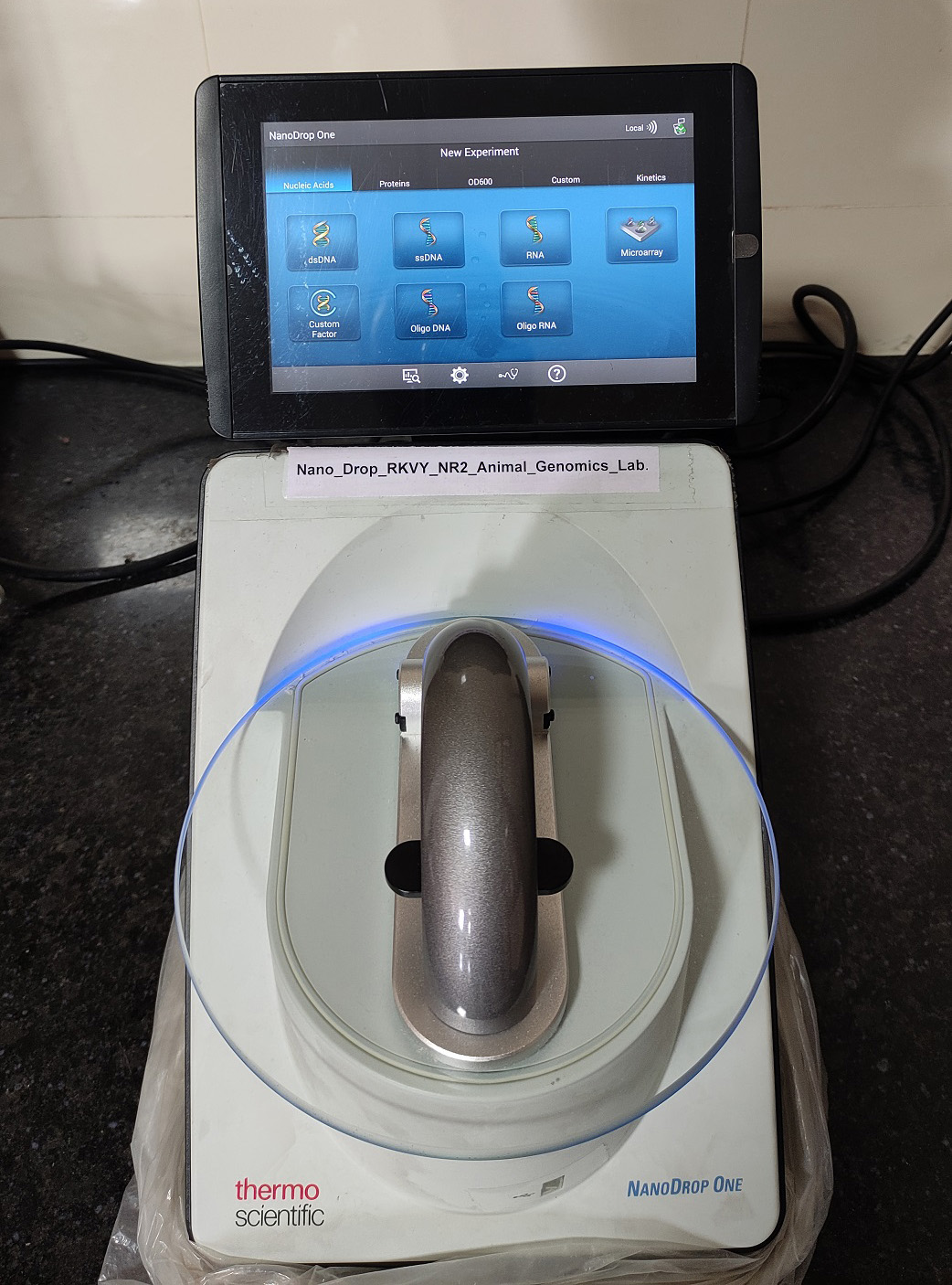
Plate Reader and Hybrid Plate reader with Chemilumiuscence
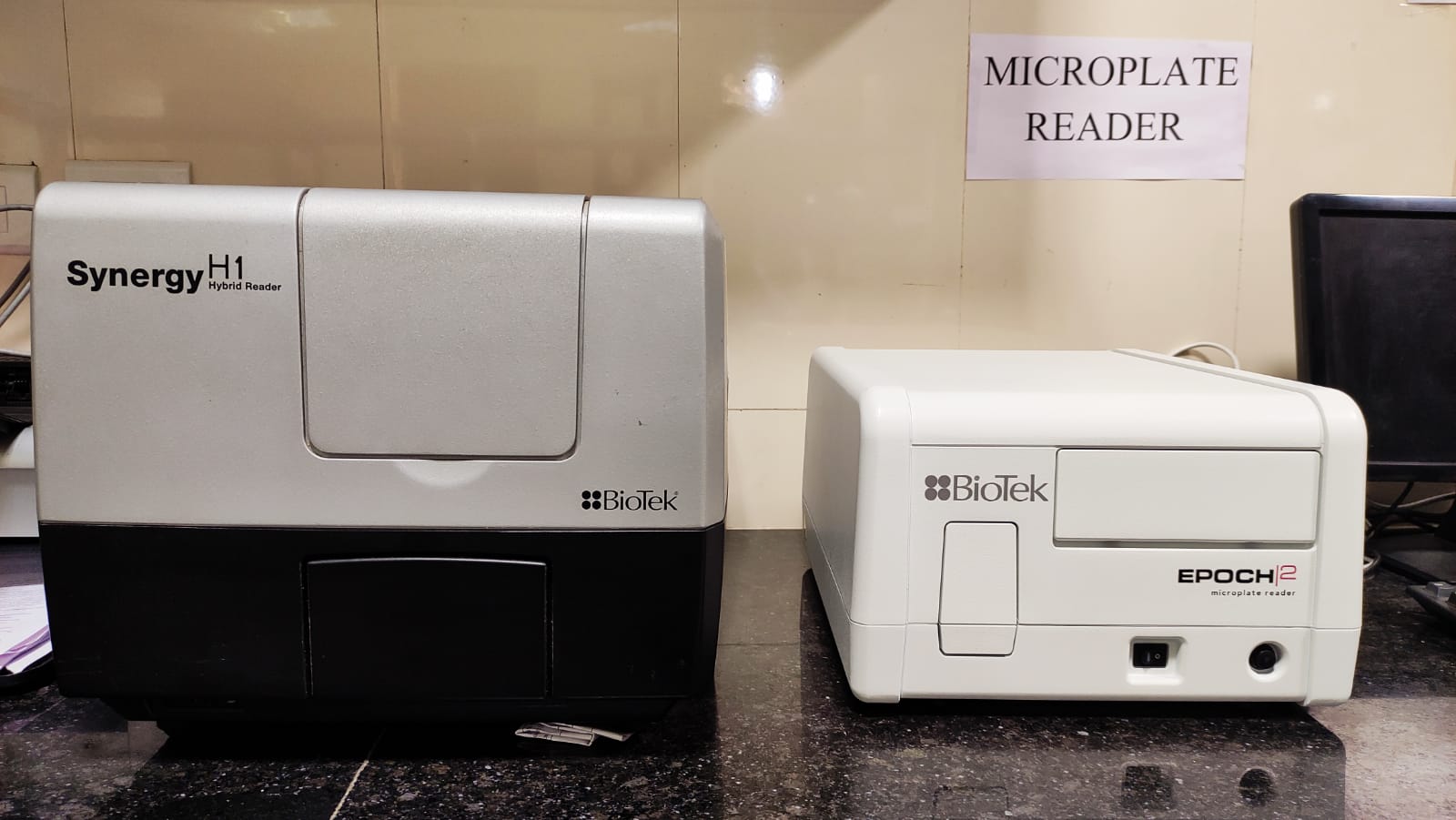
Dark Field Microscope
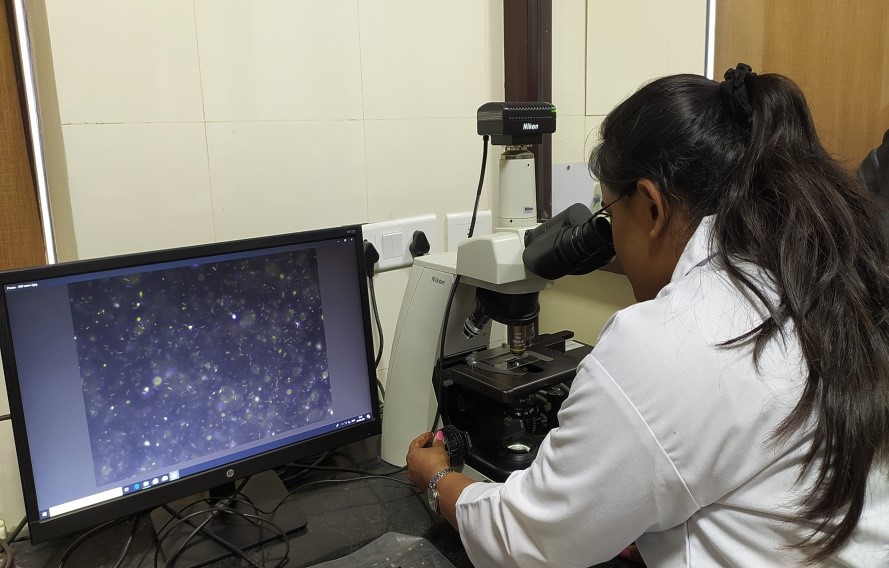
Inverted Microscope with Imaging System and Fluorescent Assembly
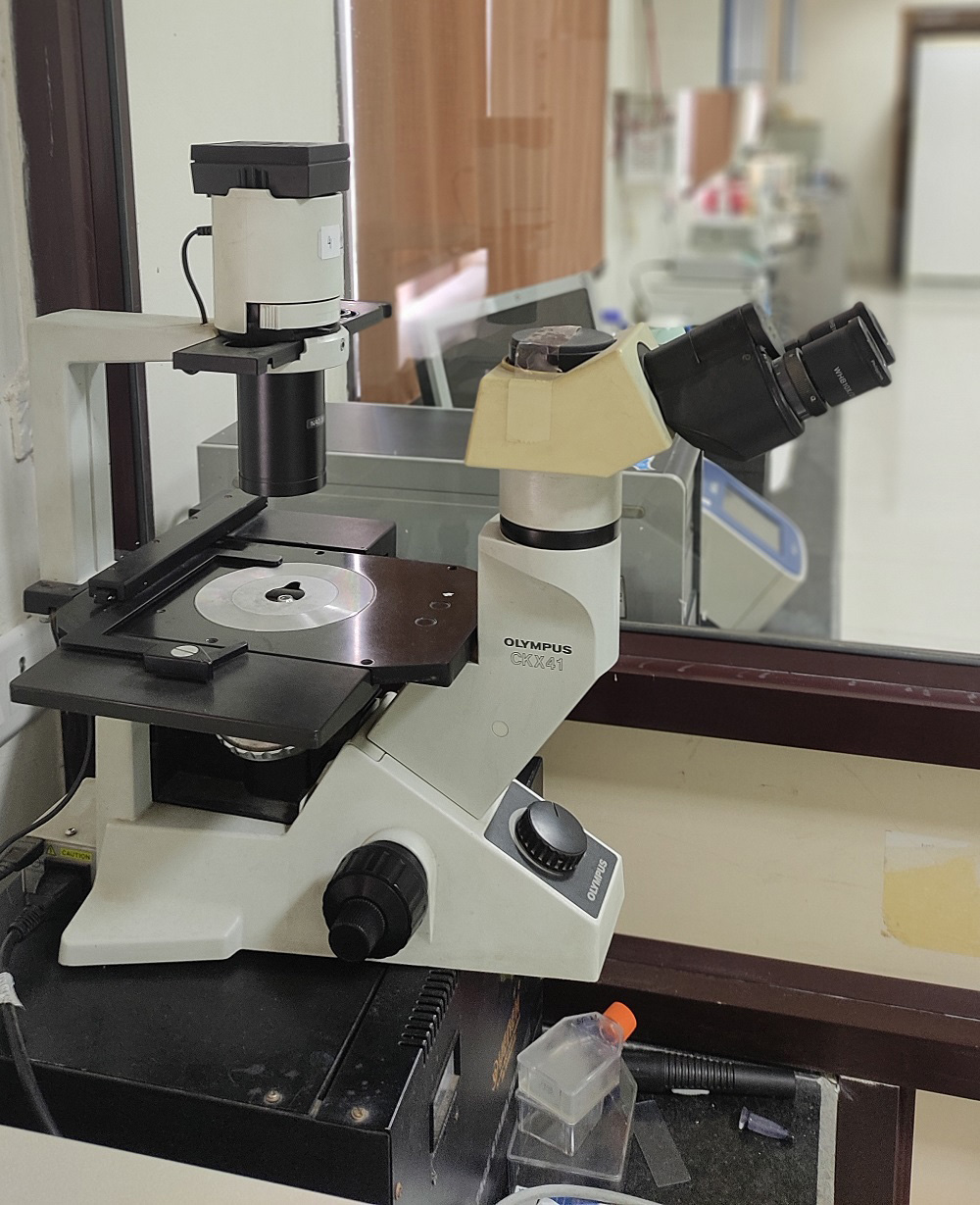
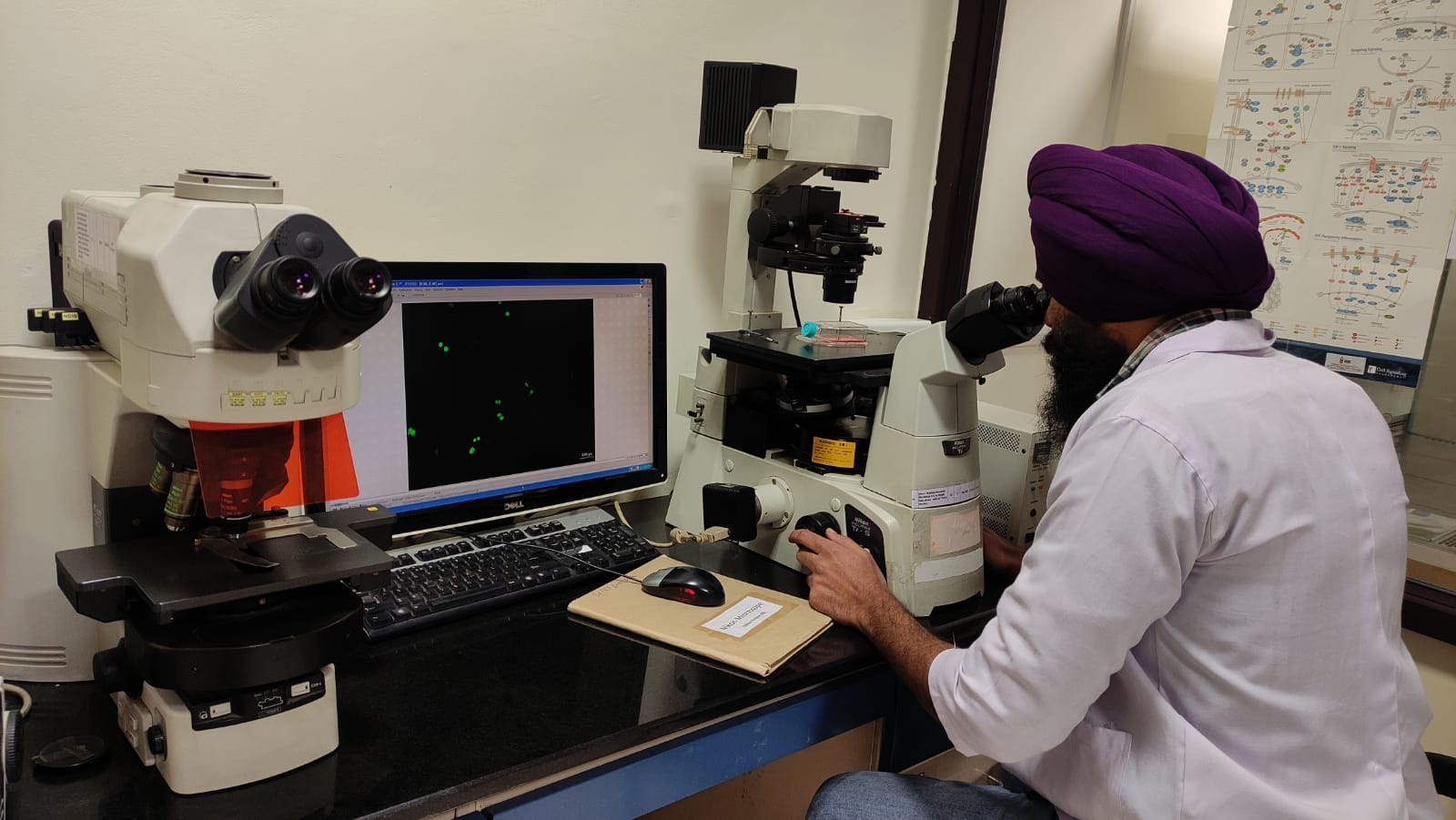
Gel Documentation systems
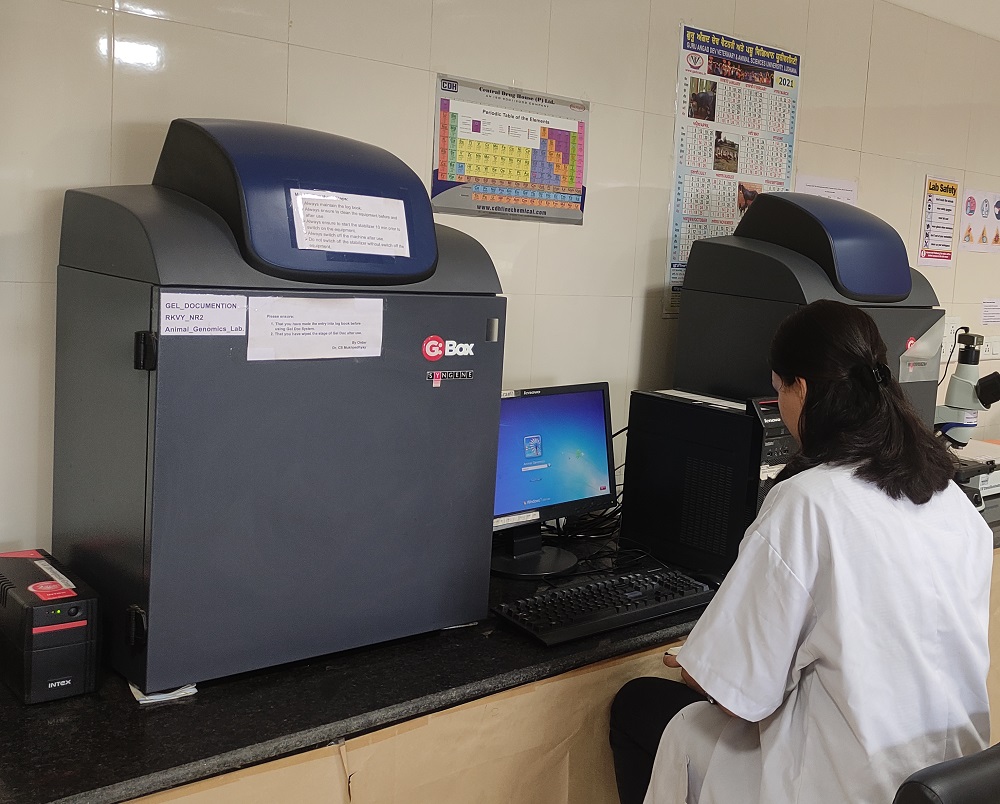
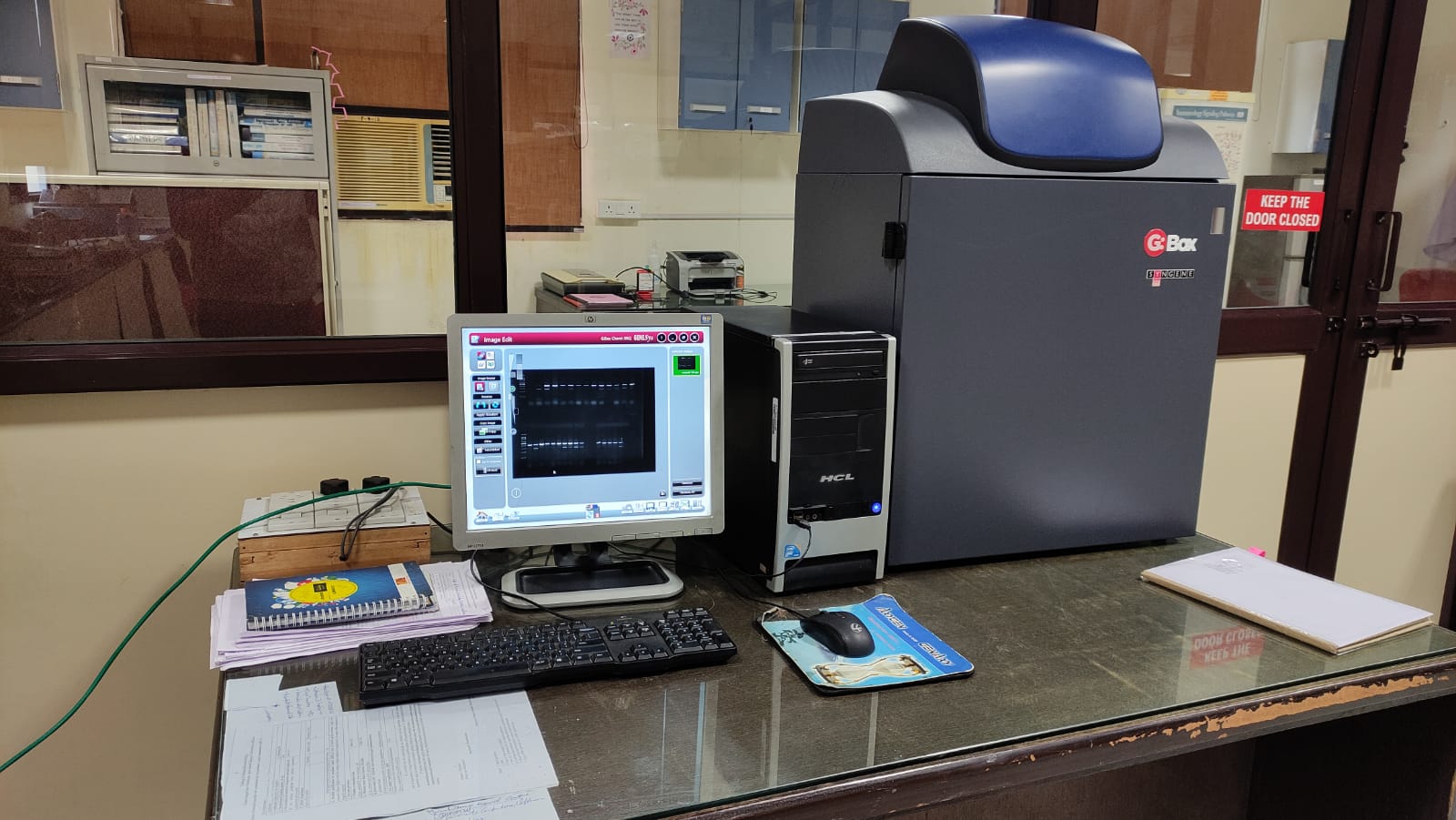
Refrigerated Centrifuge
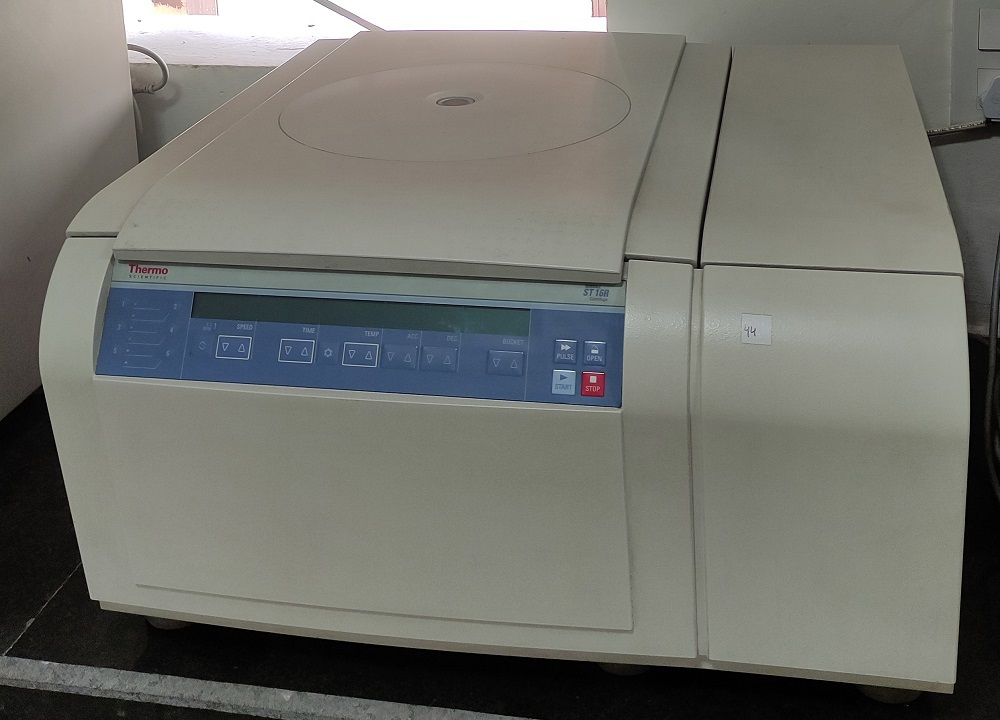
Micro Ultracentrifuge
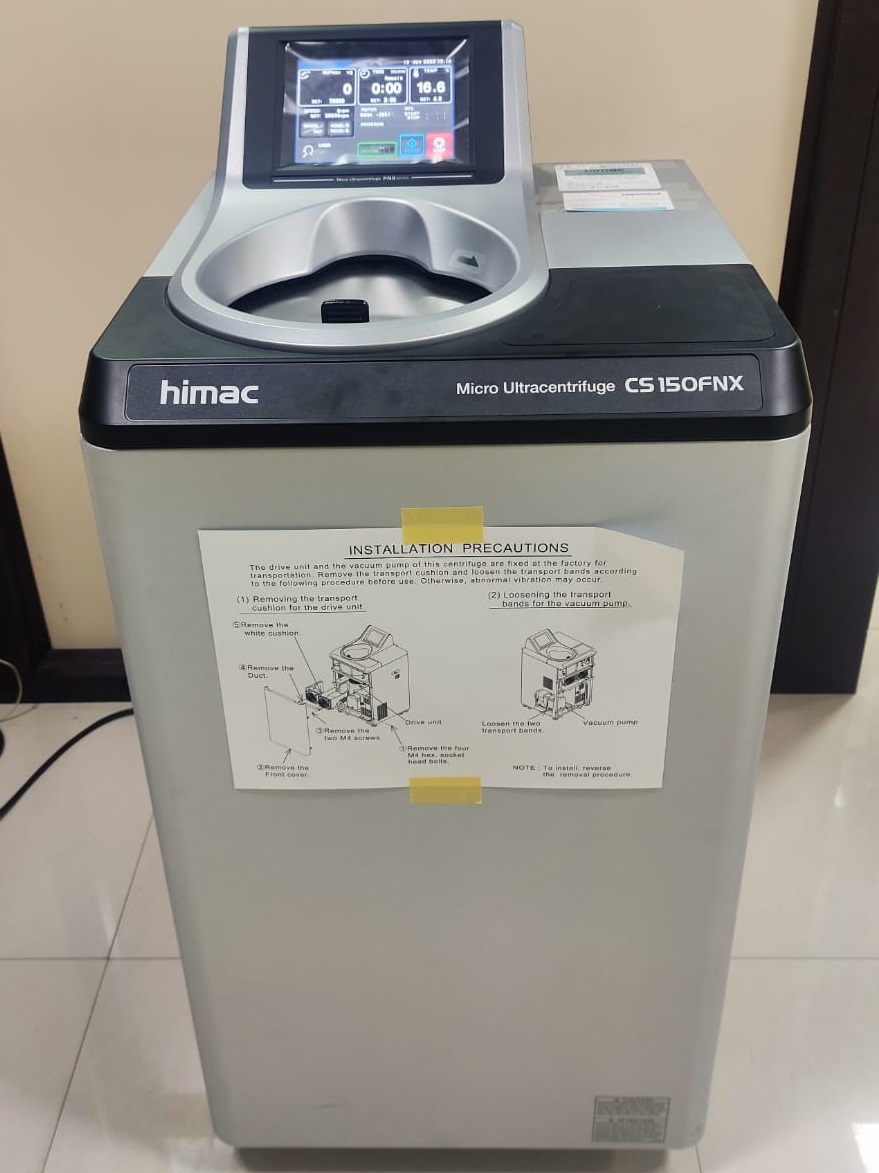
Rotary-Microtome with dispensing system
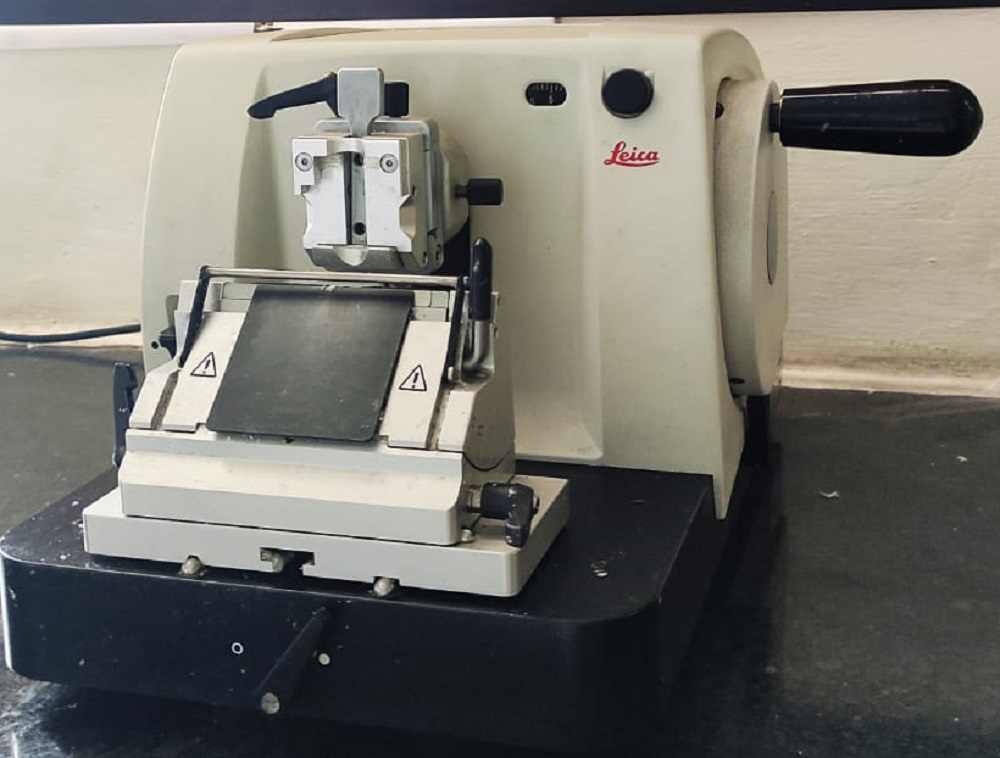
Bio Safety Cabinets (Class III --01, Class-II--04)
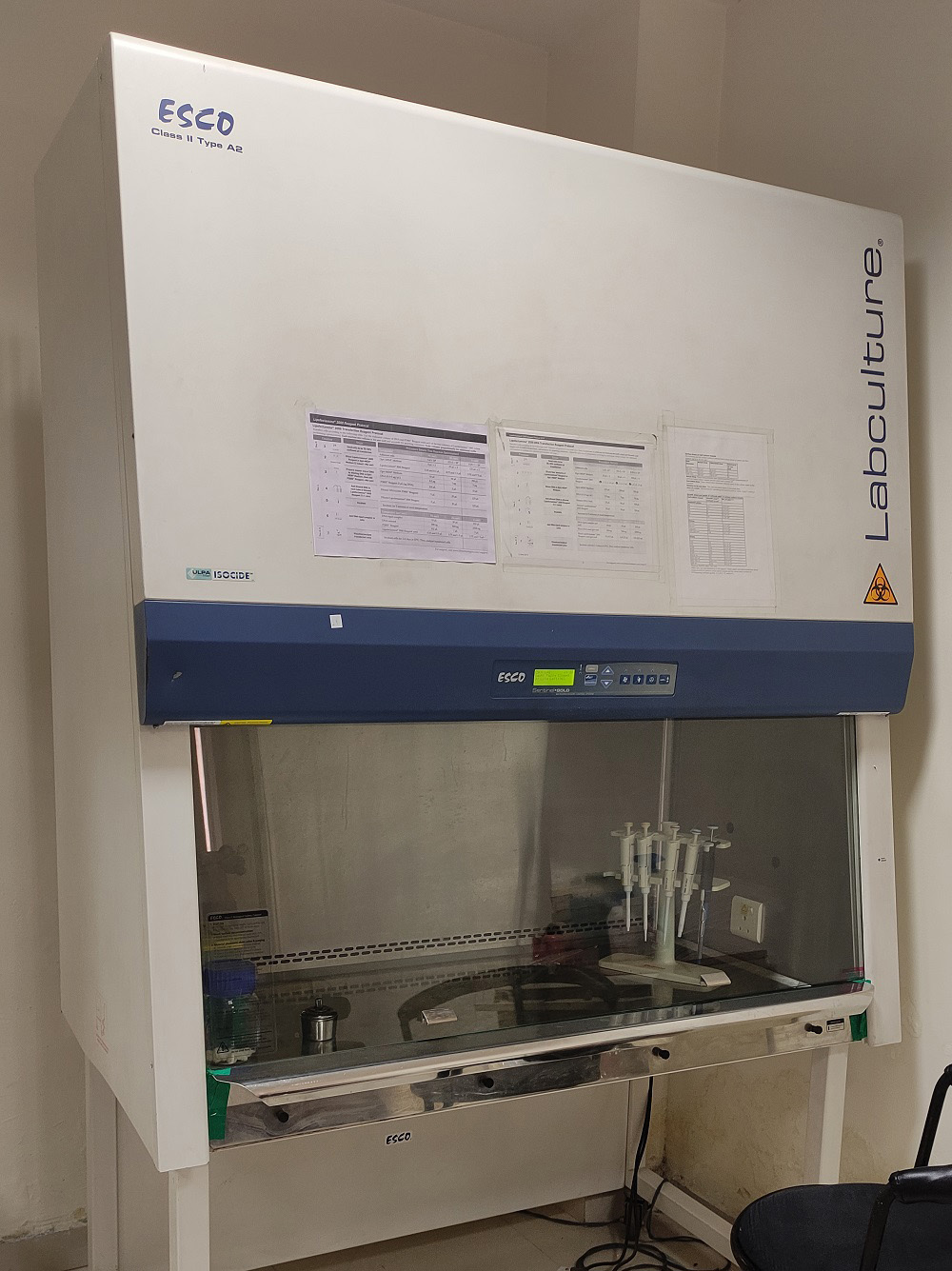
Bio Safety Lab (Class II)
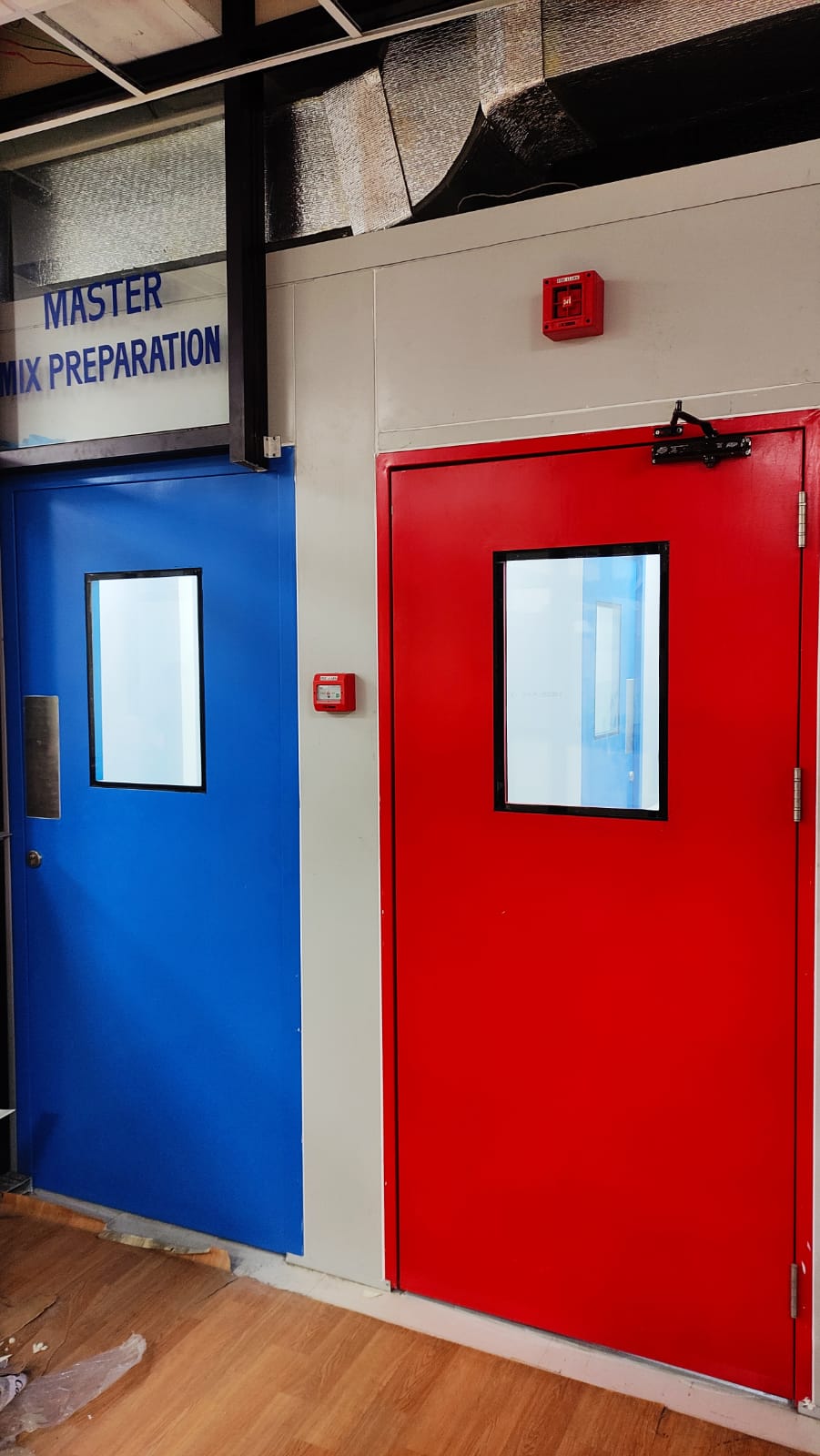
Cryo-preservation and multiple Deep Freezing (-80ºC & -20ºC) Facilities
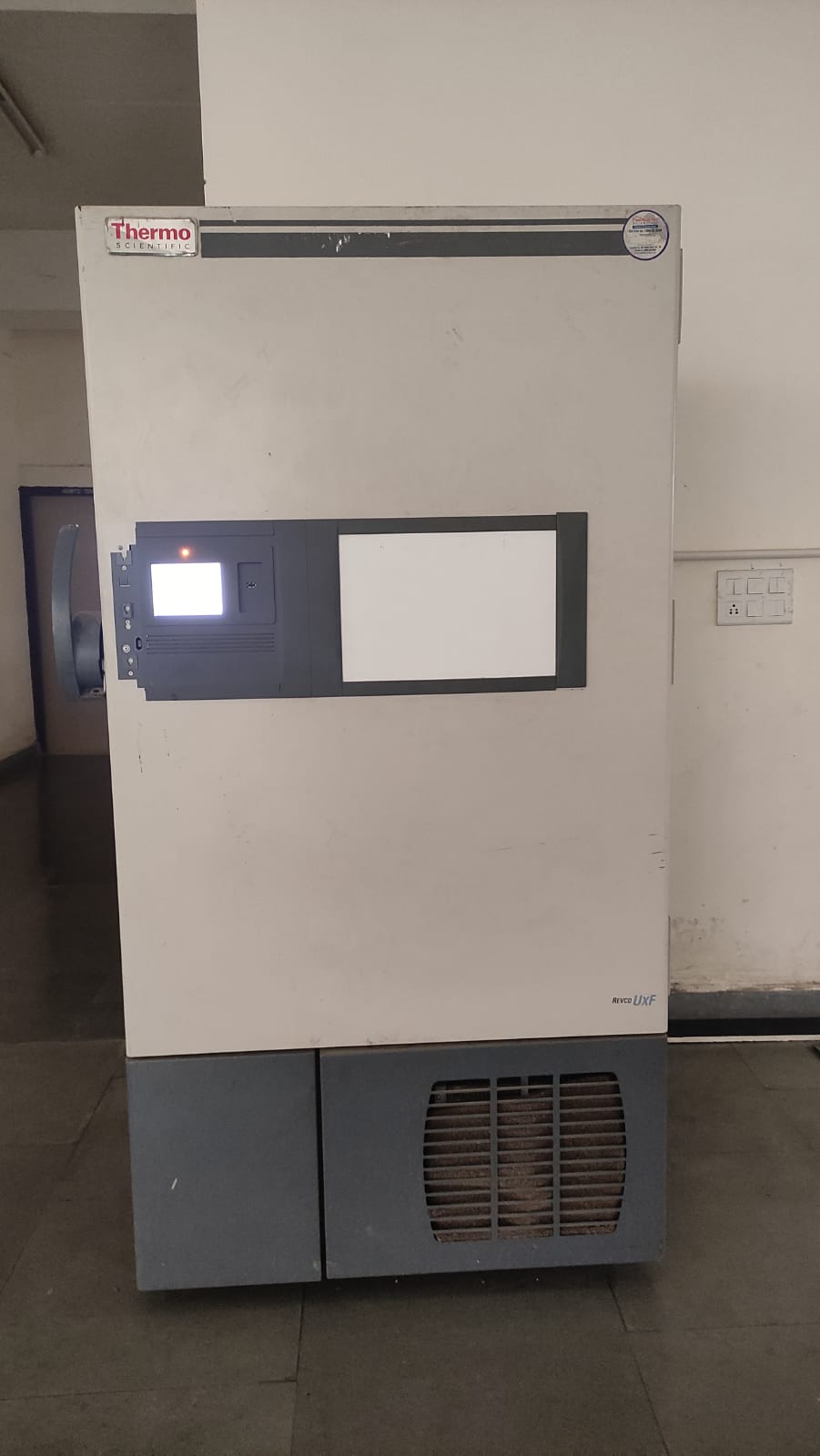
Millipore Water Purification System
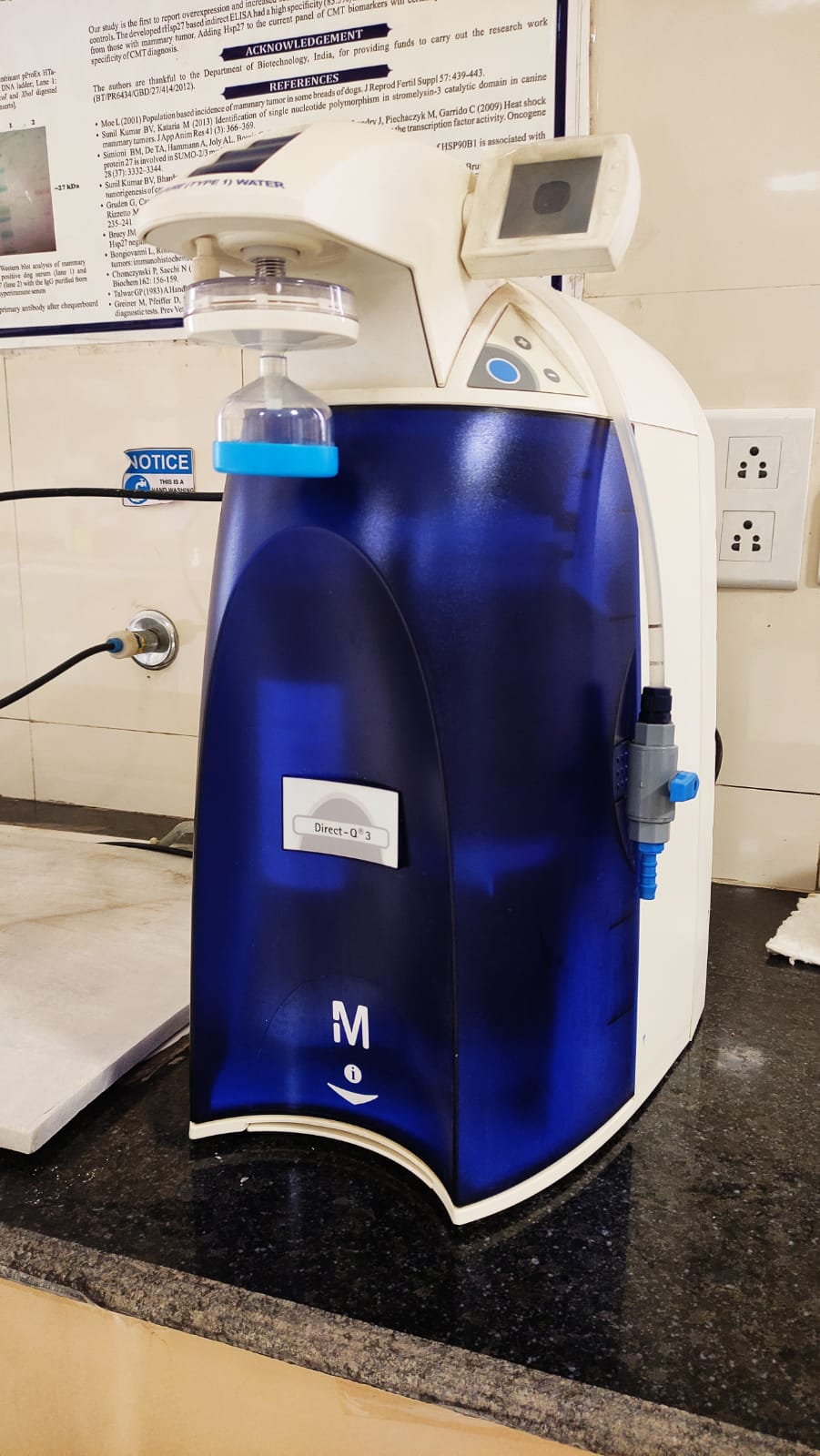
Incubators BOD/ CO2
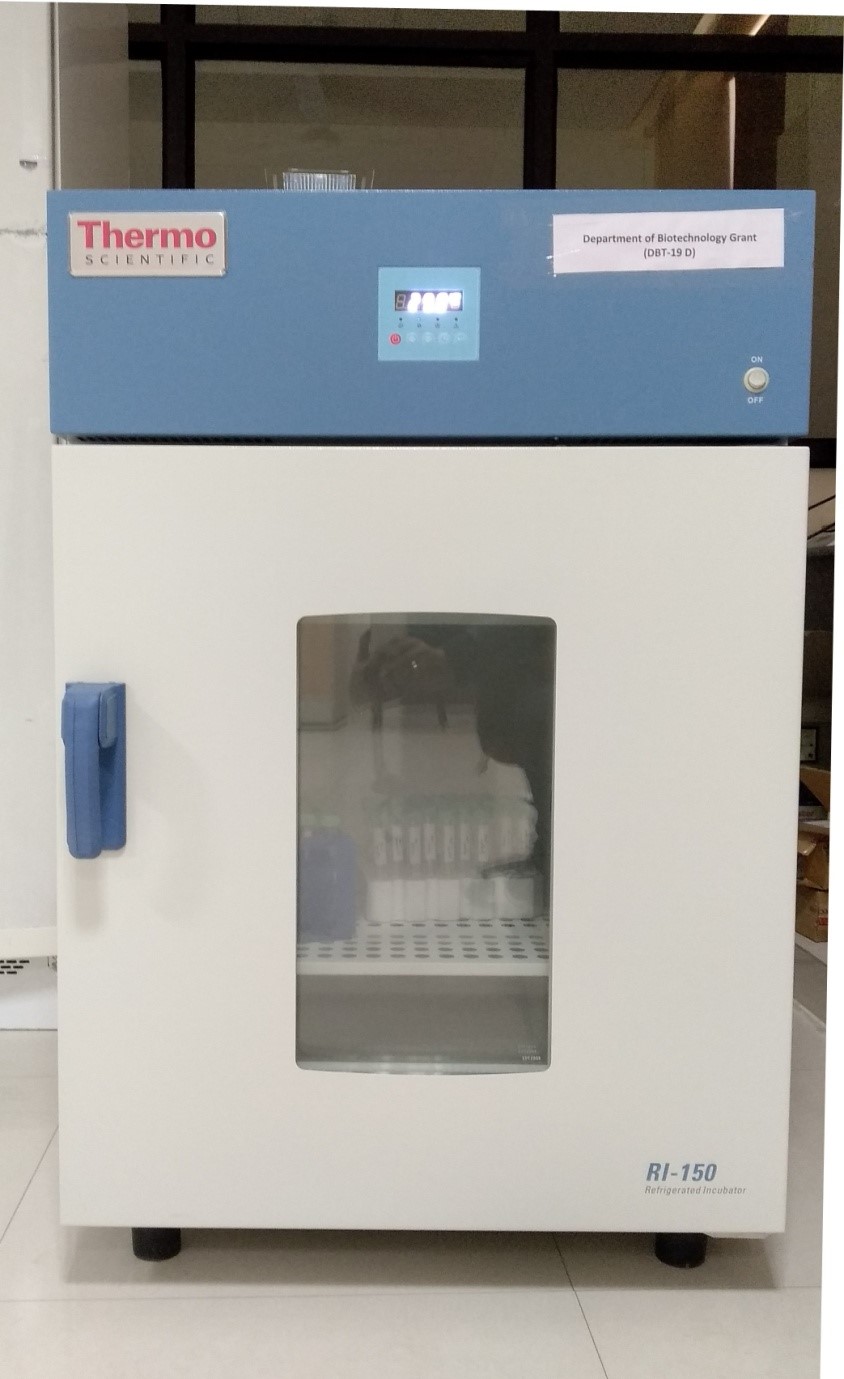
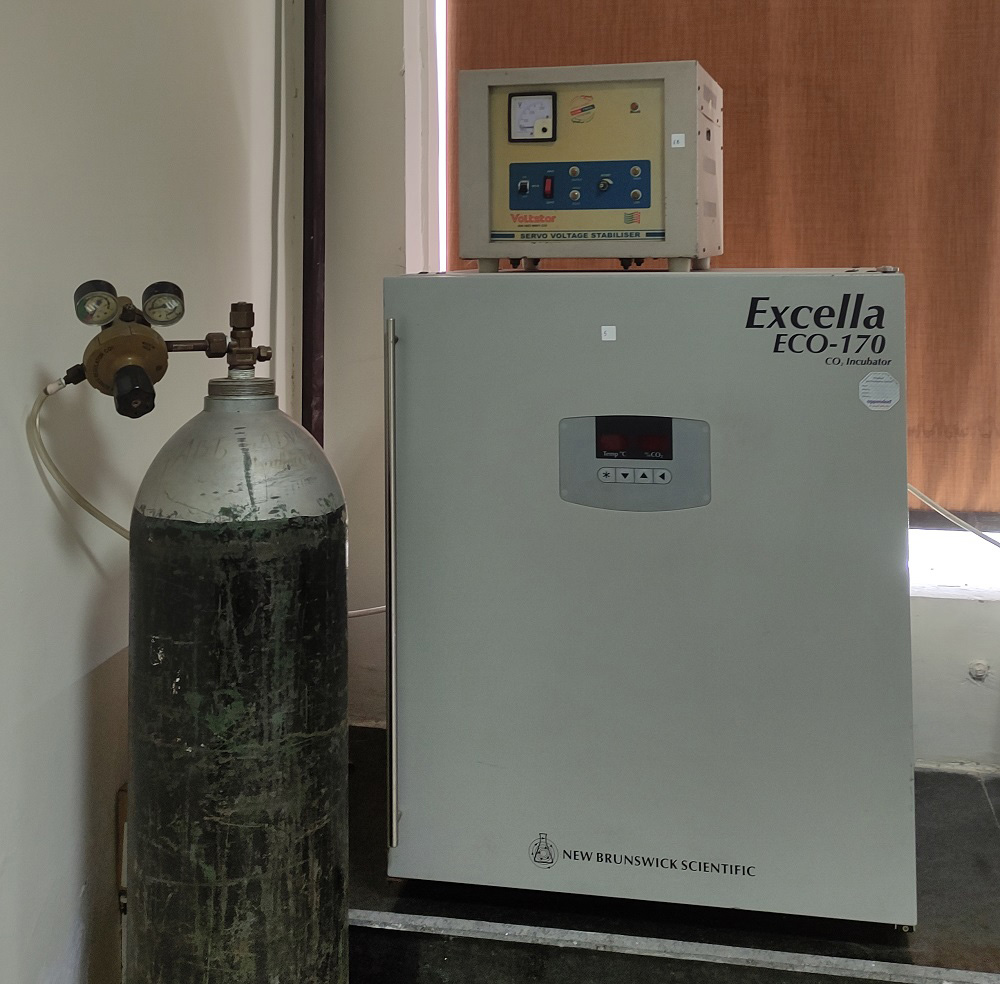
High Performance Work Station for data analysis
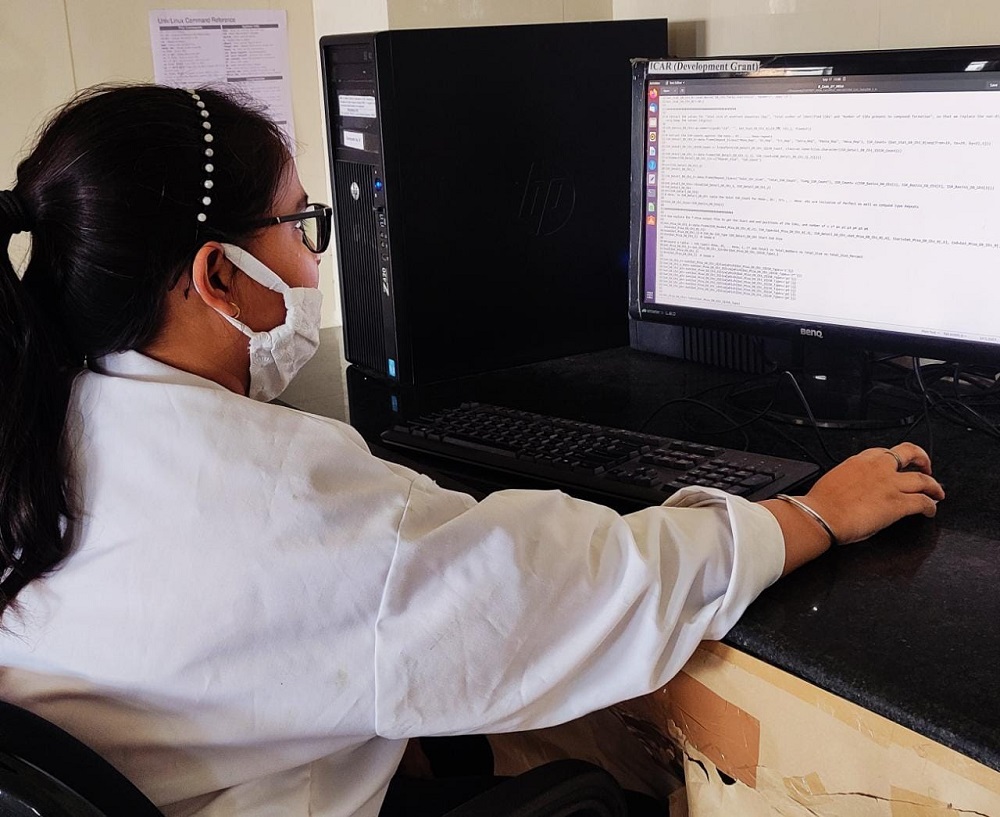
Programmable Strip Cutter
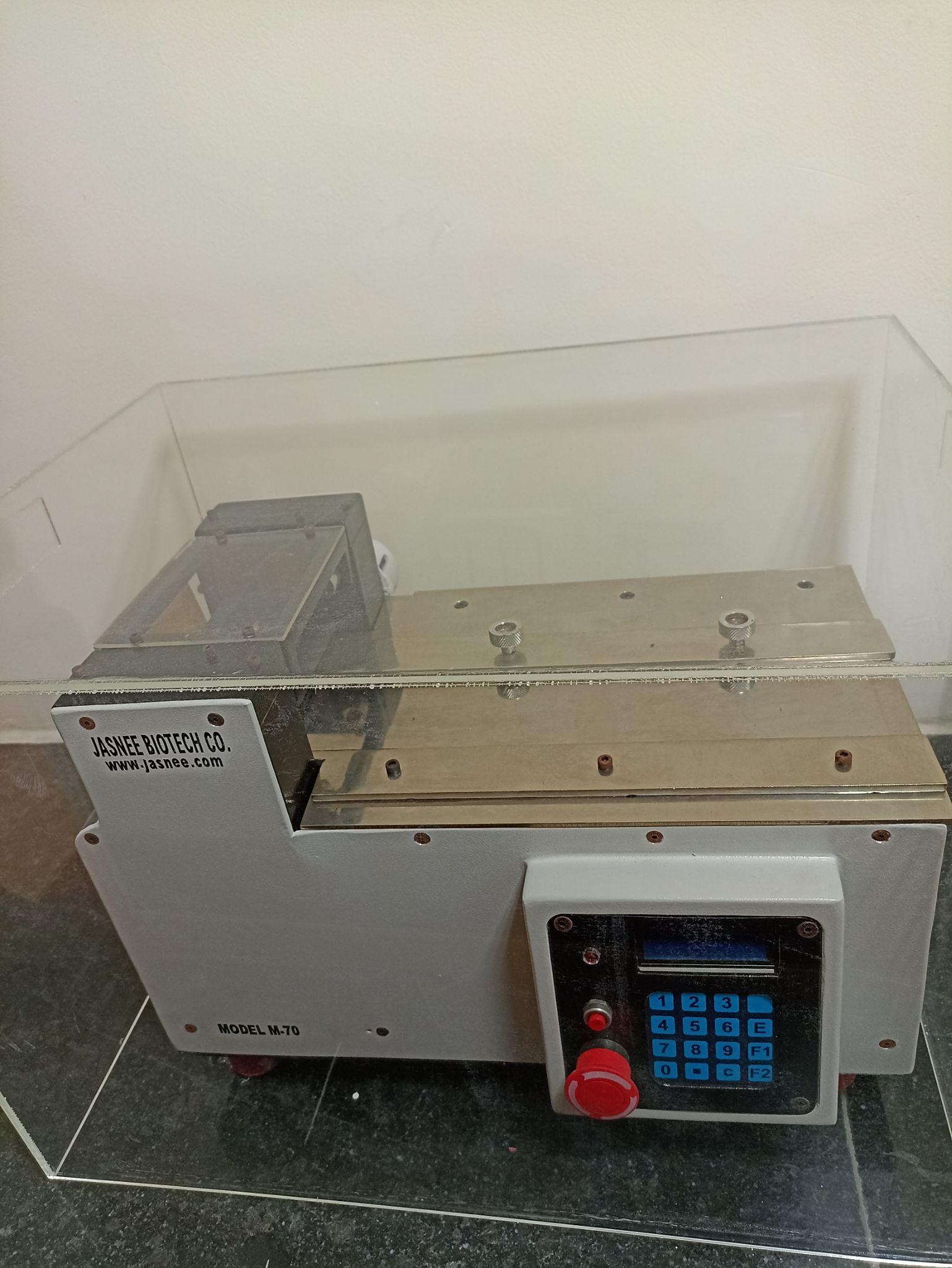
ClassII Type B2 Biosafety Cabinet
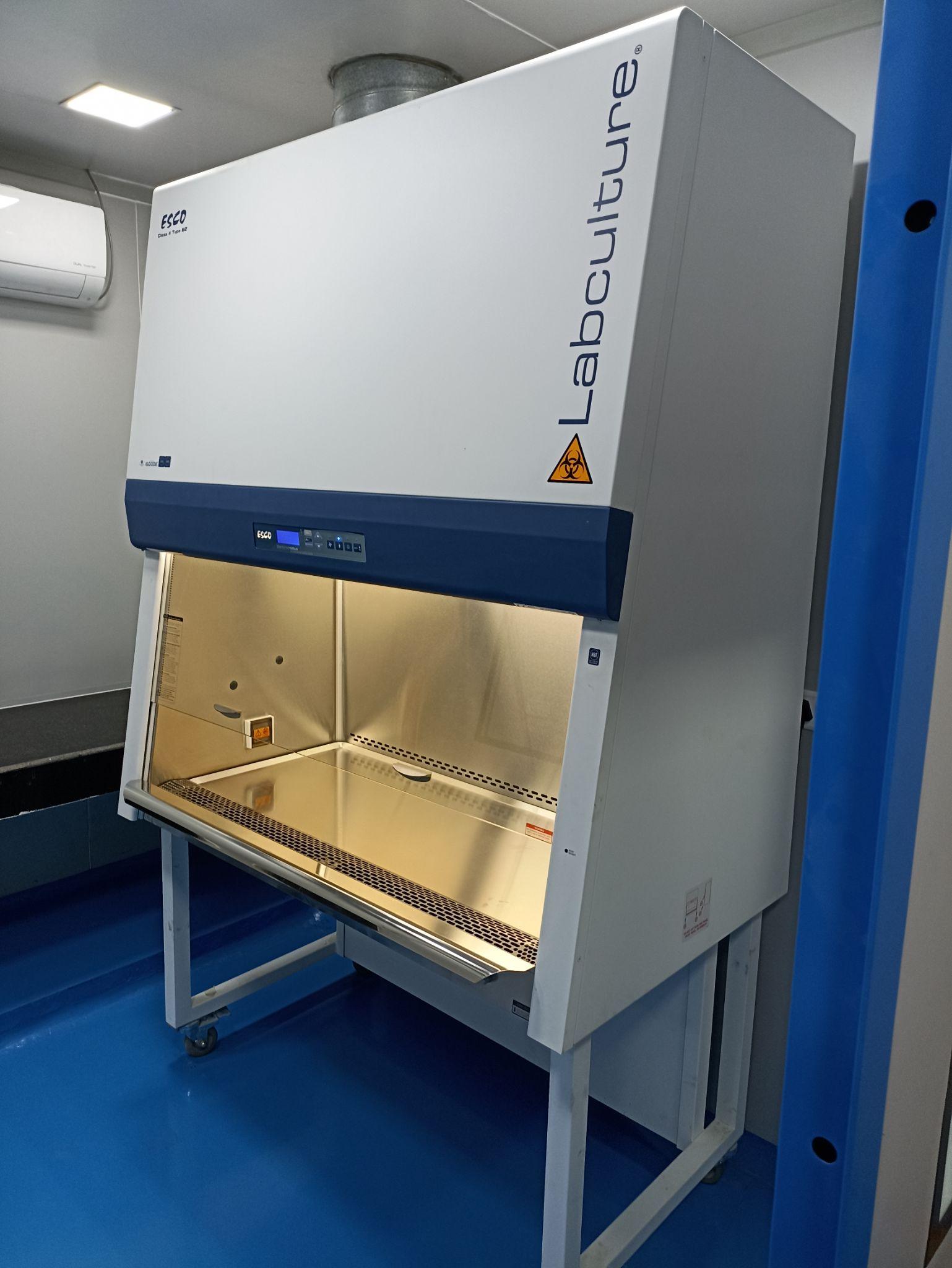
Oxford Nanopore Minion Sequencer:
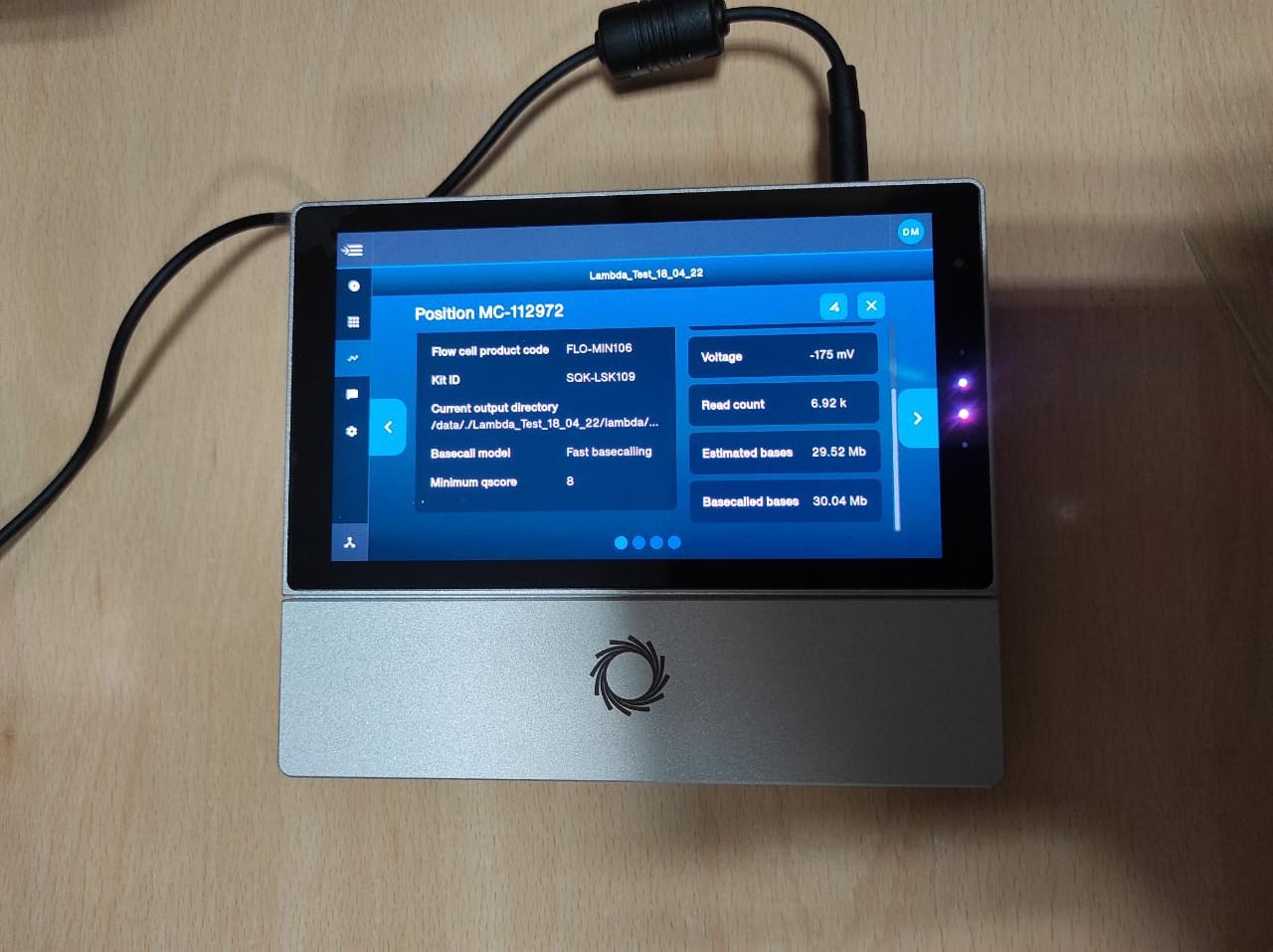
Gel Documentation System (Syngene)
.jpg)
Veriti 96-well PCR Machine (Applied Biosystems Inc.)
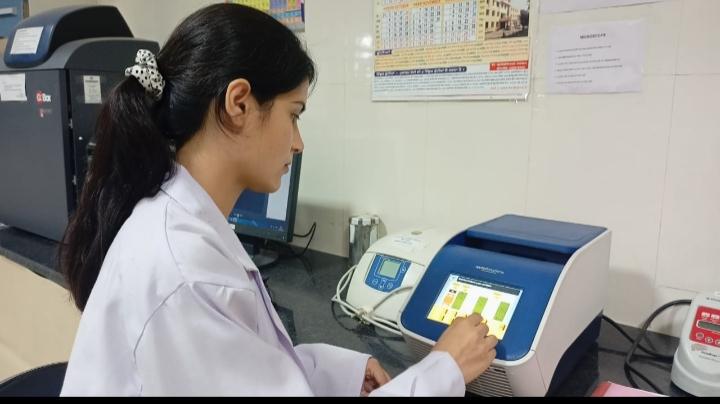
Refrigerated Centrifuge (Thermo Scientific)
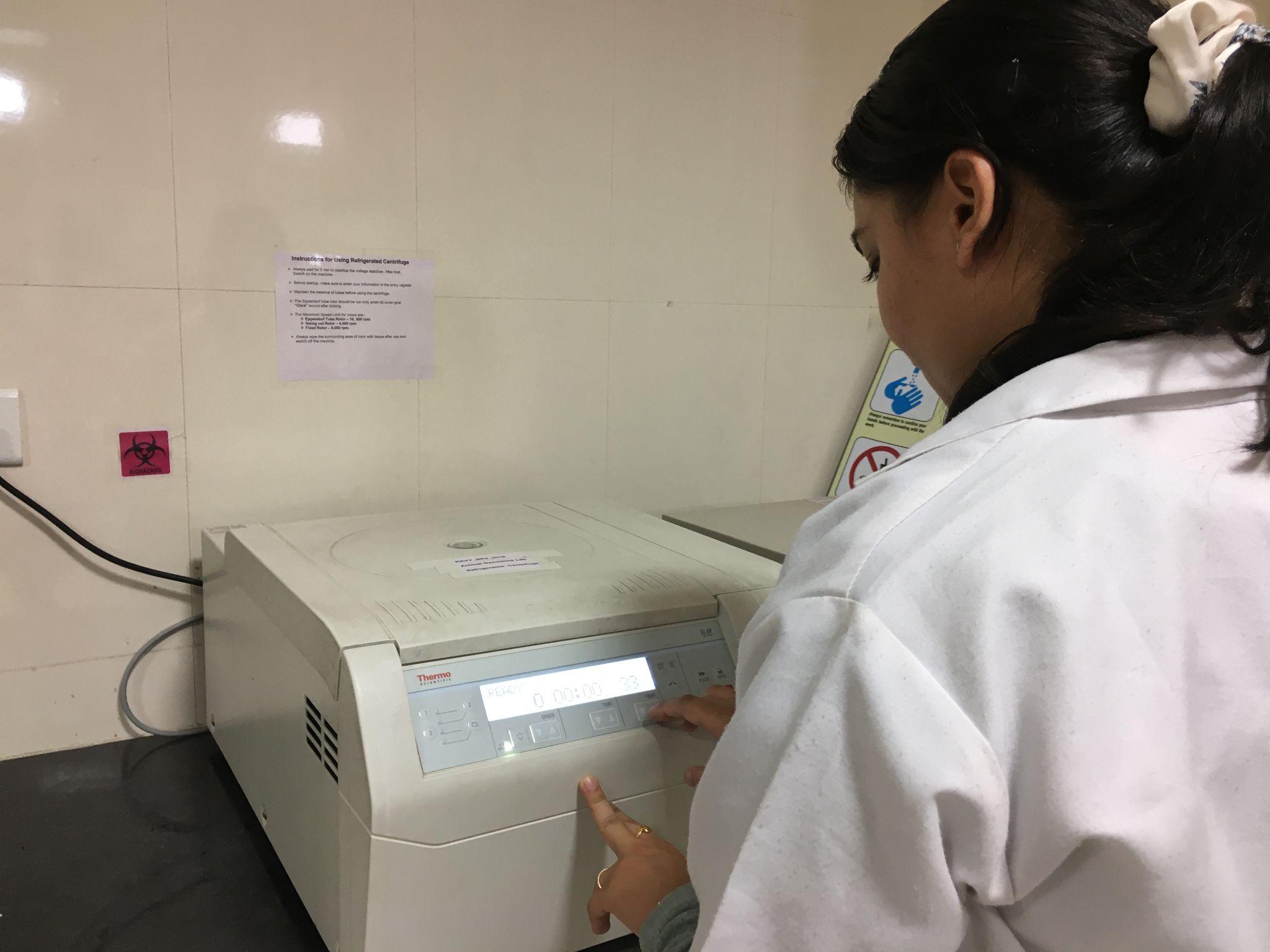
Upright Microscope with Imaging System
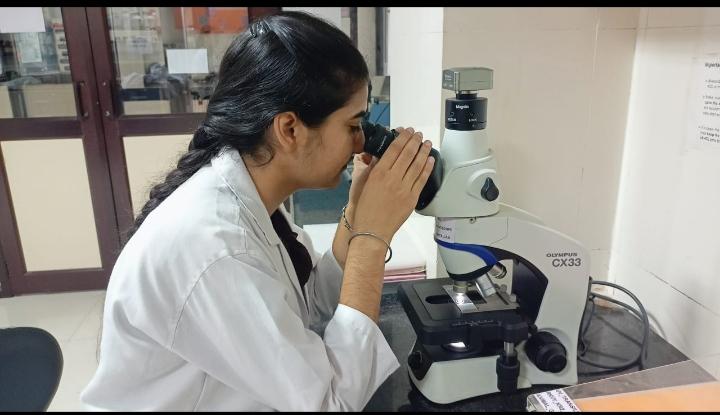
Faculty Detail

Dr. Vishal Sharma
Designation : Assistant Professor
Contact Address : Department of Animal Biotechnology, College of Animal Biotechnology, Guru Angad Dev Veterinary and Animal Sciences University, Ludhiana-141004
Telephone :
Mobile : +91-9729585717
Email : vetvishal319@gmail.com
Academic Credentials
- B.V.Sc. & AH (SKUAST-J, Jammu)
- M.V.Sc. (Animal Biotechnology, LUVAS, Hisar)
- Ph.D. (Animal Biotechnology, ICAR-NDRI, Karnal)
- SERB National Post-Doctoral Fellowship (ICAR-NBAGR, Karnal)
Teaching appointments
- Area of Specialization: Animal Reproduction and Stem cell Biotechnology.
Other appointments
- Research Associate (01/01/2018 to 31/03/2019)
- SERB-National Post-Doctoral Fellow (30/05/2019 to 29/11/2021)
Area of research
- Exploring the therapeutic potential of stem cells (Germ stem cells and Mesenchymal stem cells) in mouse models for applications in livestock
- Improving the reproductive performance of Buffaloes using assisted reproduction techniques
Ongoing projects
|
Sr. No. |
Title |
Funding Agency |
Year |
|
1 |
Elucidating Male and Female specific Factors Associated with T-regulatory cells vis a vis Fertility in Buffalo |
DBT |
2023-26 |
Research honours awards
- CSIR-JRF which was upgraded to CSIR-SRF after 2 years
- NDRI- Institutional Fellowship
- DBT fellowship during masters
- Certificate of competence in “Handling and Care of Laboratory Animals” by JNU, New Delhi
No of publications
| Research: 18 | Extension: Nil | Books/ Book Chapters: 06 | Manuals: 04 |
|---|
Publication
- Verma P, Sharma A, Sodhi M, Tiwari M, Prince V, Kataria RS, Niranjan SK, Bharti VK, Dabbas PB, Lathwal SS, Sharma V, Masharing N, Mukesh M. 2022. Identification of internal reference genes in PBMCs of cattle populations adapted to hot arid normoxia and cold arid hypoxia environments. Frontier in Genetics. doi.org/10.3389/fgene.2021.730599 (IF: 4.599)
- Saini S, Sharma V, Ansari S, Kumar A, Thakur A, Malik H, Kumar S, Malakar D. 2022. Folate supplementation during oocyte maturation positively impacts the folate-methionine metabolism in pre-implantation embryos. Theriogenology. 182:63-70. doi.org/10.1016/j.theriogenology.2022.01.024 (IF: 2.740)
- Saini S, Ansari S, Sharma V, Saugandhika S, Kumar S, Malakar D. 2022. Folate Receptor-1 is vital for developmental competence of goat embryos. Reproduction in Domestic Animals. doi.org/10.1111/rda.14092 (IF: 2.005)
- Yata VK, Gangwar DK, Sharma V, Dubey SK, Yadav SK, Choudhary S, Kumar S, Mohanty TK, Mohanty AK. 2020. Semen analysis and sperm characteristics of Karan Fries (cross breed) cattle. Animal Reproduction Science. 212. doi.org/10.1016/j.anireprosci.2019.106250 (IF: 2.145)
- Sharma V, Saini S, Aneja B, Kumar A, Thakur A, Bajwa KK, Kumar S, Mohanty AK, Malakar D. Increasing GfrA1-positive spermatogonial stem cell population of goat. 2017. Reproduction, Fertility and Development. 30(1):230. doi.org/10.1071/RDv30n1Ab180 (IF:2.31)
- Bajwa KK, Sharma V, Saini S, Kumar A, Thakur A, De S, Kumar S, Malakar D. 2017. Xenogeneic and Allogeneic Mesenchymal Stem Cell Transplantation for Treatment of Tibial Bone Fracture in Mice. Reproduction, Fertility and Development. 30(1):229. doi.org/10.1071/RDv30n1Ab179. (IF: 2.31)
- Saugandhika S, Sharma V, Malik H, Mohapatra SK, Bondre VP, Kumar S, Mohanty AK, Malakar D. 2016. Molecular characterization of IFN-T expressed in buffalo embryonic trophoblasts and expression of recombinant BuIFN-T1a2 and BuIFN-T8 isoforms in E. coli. Protein Expression and Purification 122:8-14. http://dx.doi.org/10.1016/j.pep.2016.02.005. (IF: 1.65)
- Saugandhika S, Sharma V, Malik H, Saini S, Bag S, Kumar S, Singh NK, Mohanty AK, Malakar D. 2015. Expression and Purification of buffalo intereferon-tau and efficacy of recombinant buffalo interferon-tau for in vitro embryo development. Cytokine. 75(1):186-96. doi: 10.1016/j.cyto.2015.03.012. (IF: 3.861)
- Ghai S, Saini S, Ansari S,VermaV, Chopra S, Sharma V, Devi P, Malakar D. 2022. Allogenic umbilical cord blood-mesenchymal stem cells are more effective than antibiotics in alleviating subclinical mastitis in dairy cows. Theriogenology. doi.org/10.1016/j.theriogenology.2022.05.001 (IF: 2.740)
Book Chapters
- Sodhi M, Mukesh M, Sharma V, R.S. Kataria RS, Sobti RC. 2022. Harnessing potential of A2 milk in India: an overview. In: Advances in Animal Experimentation and Modeling. RC Sobti. Academic Press, Elsevier. Ch 30, pp 379-392. (ISBN: 9780323905831). https://doi.org/10.1016/B978-0-323-90583-1.00016-7.
- Sharma V, Aneja B, Yata VK, Malakar D, Mohanty AK. 2020. Systemic Nanotoxicity and Its Assessment in Animal Models. In: Yata V, Ranjan S, Dasgupta N, Lichtfouse E. (eds) Nanopharmaceuticals: Principles and Applications Vol. 3. Environmental Chemistry for a Sustainable World, vol 48. Springer, Cham. https://doi.org/10.1007/978-3-030-47120-0_7.
- Malakar D, Malik HN, Kumar D, Saini S, Sharma V, Fatima S, Bajwa KK, Kumar S. 2020. Stem cells: A potential regenerative medicine for the treatment of diseases. In: Advances in Animal Genomics. Eds: Mondal S, Singh RL. Academic Press, Elsevier, London, UK. Ch 3, pp 33-48. [ISBN: 978-0-12-820595-2]. https://doi.org/10.1016/C2019-0-00045-3
- Sharma V, Aneja B. Advances in Animal Health and Welfare. 2018. Cattle Health Concerns in India. Ch.12. Agrobios (India) pp 155-172 (ISBN: 978-81-934673-9-8).
- Aneja B, Sharma V, Yadav NR, Yadav RC. Transcriptomic Analysis for Abiotic Stress Resistance for Crop Plants. 2018. Crop Improvement for Sustainability. Ch. 26. Daya Publishing House. pp 499-514 [ISBN: 978-93-5124-942-9 (HB)].
- Sharma V, Thakur A, Kumar A, Shama B, Aneja B, Saini S, Malakar D. Conservation of germplasm and stem cells in livestock and their applications in future. 2017. In situ conservation of Indigenous livestock and poultry breeds. Ch. 21 pp 159-71. (ISBN: 978-93-83537-37-2).


